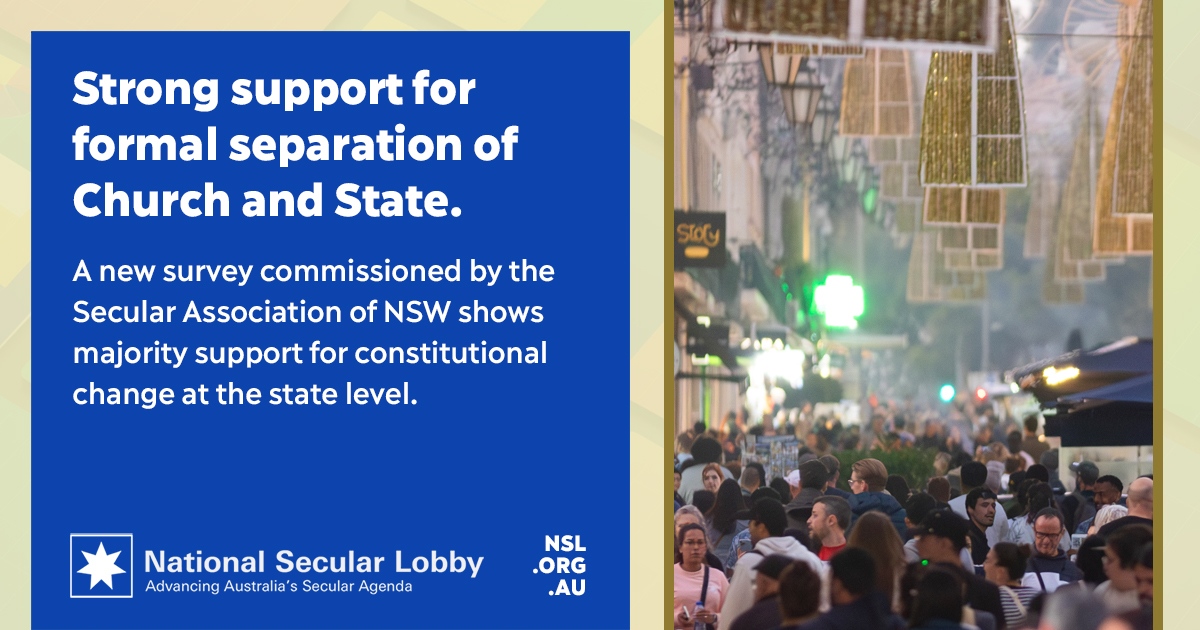YouGov survey shows support for formalising church-state separation in state constitutions
Survey results courtesy of our friends at the Secular Association of NSW.
A YouGov survey commissioned by the Secular Association of NSW on the formal separation of religion and government in state constitutions has found majority support. The survey was conducted 15–21 February 2024 from a sample of 1,087 people.
While secularity is mentioned in the Australian federal constitution (s.116), it is commonly considered to be weakly represented and vaguely defined, enabling broad interpretation and creating a 'flexible' separation of church and state.
In fact, the clause forbidding the Commonwealth from making any law for establishing any religion was ruled in 1981, by our high court, relying in part on very specific understandings of the words "for" and "any", to not guarantee the separation of church and state.
The existence of state constitutions
The first survey question focused on the fact that the states each have their own constitutions. A majority of respondents, 55%, said they were not aware that their state has its own constitution separate from the federal constitution.
Those who said they were aware of their state’s constitution were asked if they had seen or read it. Just 13% said they had read their state’s constitution, 6% of the overall sample.
Formal separation of government and religion at the state level
Respondents were told that Australia has no formal recognition of separation of government and religion, and were then asked if they would approve or disapprove of a constitutional amendment to formally separate government and religion in their state.
A majority of respondents nationally -- 51% -- approved of this proposition. 20% disapproved and 29% didn't have a position on it. Approval of this proposal led by 48–21 in NSW, 48–22 in Victoria and 50–21 in Queensland.
Additional statistics
Other data that came from the survey:
- People identifying as not religious were (perhaps unsurprisingly) more likely to support a change (61%) than religious people (42%).
- Labor voters were more likely to support a change (53%) than LNP voters (46%) but not as likely as Greens voters (71%).
- People who voted Yes in the recent Voice referendum were substantially more likely to support a change (74%) then those who voted No (38%).
- Males were more likely than females to approve of an amendment (61% versus 43% -- 39% of females said they weren't sure).
- All age groups, with the exception of the over 65s (at 39%), approved in majority.
As seen in the Secular Association's poll of similar questions aimed at the national level last year, it seems as though there is significant enthusiasm for formal separation of government and religion in Australia.
A need for change
A more formal adoption of constituional separation of church and state, whether federally or at the state level, would help greatly in the ratification of secular social policy. This is ever more relevant given the ongoing trend in religiosity in Australia, with the 'no religion' figure rising dramatically to 39% at the last census.
Historically, however, willingness amongst politicians to consider change in this area has been almost completely lacking. While happy to pay lip service to the importance of secularism in the right circumstances, parliament will no doubt need much more encouragement to properly enact the will of the people.

